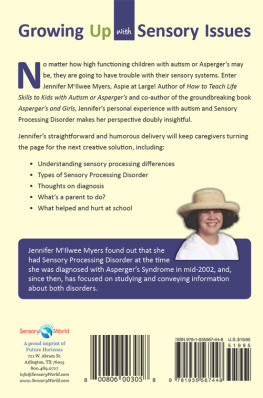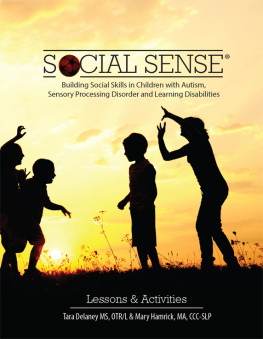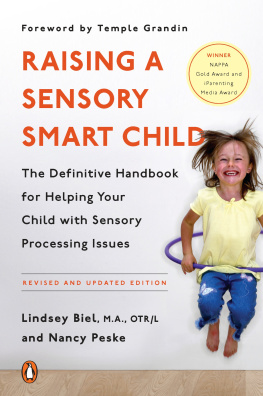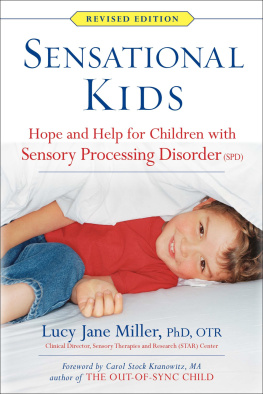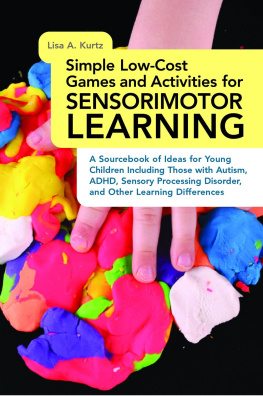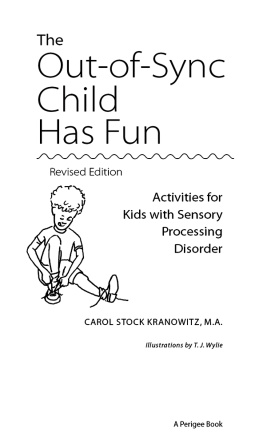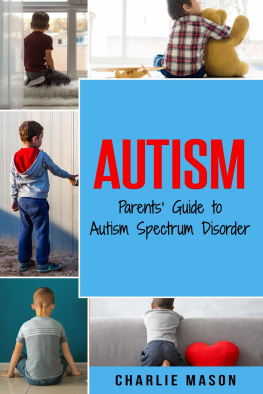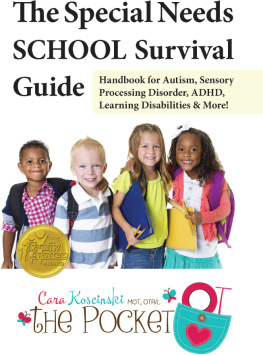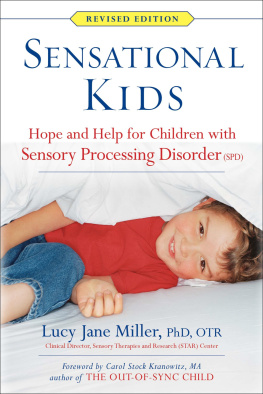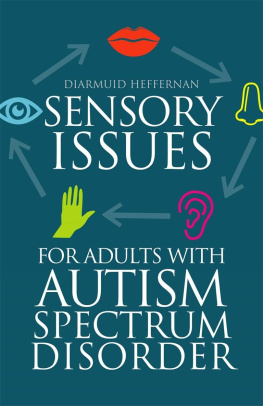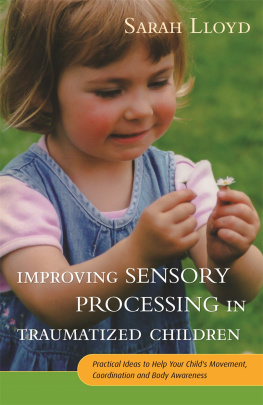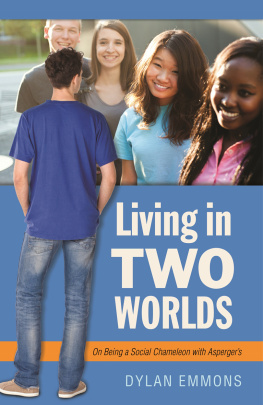To Gary and also to Catherine, without whom ...
Acknowledgments
T here are so many people who have contributed information, time, and energy to this book that its ridiculous. If this were the Academy Awards, Id get played off before I could remember one-tenth of them. Actually, that would be great, because getting cut off early would give me an excuse for the fact that I cannot possibly get to everyone.
Ive learned an amazing amount from folks I barely know or only met once from both the Sensory Processing Disorder community and the autism community. There are people who came up to me at conferences and shared everything from great advice to harrowing personal stories. Also, this one time, after I admitted during my talk that I carry a Lego Loki as one of my talismans, a woman came up to me and pulled a plush Thor doll out of her purse, and we made them fight.
A few of the specific people I can remember at the moment:
My parents, Roy and Ruth McIlwee, who were astonishingly intelligent and inventive when it came to creating ways to teach me to be a person. They are also under the parental delusion that Im wonderful. Please, nobody tell them otherwise, they dont need to know.
My sister, Catherine, has taught me about strength and character and will deck me if she ever catches me wearing a scrunchy. Shes just protective like that.
My brother, Jimmy, who is just plain great.
My nephew, Pete, didnt have a lot to do with this particular book, but since Im really late getting him a birthday present I figure Ive got to find a way to get back on his good side.
Cassie Zupke and her mad crew have (ironically) helped me stay sane. Google her, read her book, Like Cassie Zupkes Autism Blog on Facebook. More than worth it.
My friend HyeKyeung Seung, who taught me to hear new sounds.
Carol Stock Kranowitz, for being an endless source of inspiration and information about SPD. Another nut, by the way, but it seems all the best people are.
Lucy Jane Miller, PhD, much of the same as Carol in the way of inspiration and information, but even more so for her championing of SPD in research and of children with SPD every single day.
The Gilpins, including but not necessarily limited to Wayne, Jennifer, Kelly, and Alex. Without all of their help I might never have become a writer, and certainly would be less of a person.
Teresa Corey, for (usually) keeping me (almost) sane on the road.
The entire staff of Future Horizons and of Sensory World. These are publishers that outdo the others in a zillion ways, and Im grateful to be a kissin cousin to the FH/SW family.
Id like to mention Kim and Annie and Sheri and Lyn specifically, but that wouldnt be entirely fair because I cant remember the names of everyone else at FH I want to thank right now.
All of my piano teachers and guitar teachers, who I will not name for fear people might associate their skill level with my lack of musical talent. They taught me a lot by stubbornly working with me even though I had no idea what I was doing.
My speech therapists. All of their names are faded now, but I remember each of them with smiles and an immense feeling of relief that they showed up and worked with me, week after week. They saved my bacon in even more ways than they knew.
Ive had too much caffeine and too little sleep, so not only are there amazing people who havent been mentioned here, the ones who are here havent been thanked adequately.
Gary Myers. Because.
Table of Contents
 | Introduction
Read Me First |
S ince this isnt your typical book on Sensory Processing Disorder (SPD), I feel it is only fair to let you know what you are getting into. There are three major areas of weirdness you should definitely know about up front.
First: This book does not fit the typical SPD-book mold in some ways. A lot of books on sensory processing disorder offer really detailed explanations of how each individual sense is affected in each possible permutation of SPD, and provide a ton of checklists and generally provide a full overview of the diagnostic process as well as an overview on treatment possibilities and standards. These books are focused on getting parents educated about what SPD looks like from the outside and how they can find professionals to help their child. This is, absolutely, a great thing to have resources for. But its not what I have to offer.
This book will spend some time discussing how important the sensory systems are to human functioning, and what the different categories of sensory processing disorder are called, what they are, and how they can trip up an unsuspecting child or adult. That should help get us all on the same page, so to speak.
But much, much more than that, this book is about what it is like to grow up with SPD. This is about being an unknowing SPuDster, trying to find ways to get through childhood, and hitting a ton of walls. This is about what helps and hurts when you are putting forth the best effort you know how to, and yet not able to get the information or support you need to succeed, especially in school.
This is about how my parents supported me by teaching me good life skills that helped me get by despite my limitations. Its about things that you wouldnt think of, things the average therapist wouldnt have time to discover that make life better, sweeter, and worth living even though youre the last kid picked for everything.
I think I may even have some info that will help parents, teachers, and therapists tell when they need to provide extra support or information. I am very much against coddling kids with SPD (or other disabilities). I am very much for providing growing kids and teens with the support they need to become more than Problem Kids or a kids with problems.
Second: This is a chatty, talky book. That means the style here is conversational. If youve heard me speak and read anything else Ive written, you know that I write like I talk. Determining whether thats a good thing is outside of the scope of this book.
Whats important is that many little things in this book would not be correct if I were writing a paper, essay, or a real book. That means I need to warn the grammar lovers that pronouns will be used in an eccentric way. English has no simple neutral pronoun that means either he or she, so sometimes examples I will use he, sometimes she, and sometimes they. They is the closest thing weve got to a neutral pronoun in this language, and Im not afraid to use it. So if I say, A child with sensory problems may feel they are all alone, please understand that this is simply how I generally speak of one person who may be either a he or a she. More importantly, DO NOT send hate mail to my editor. Its not her fault! Trust me, anyone who has to edit my prose has more on their plate than they can possibly handle.

